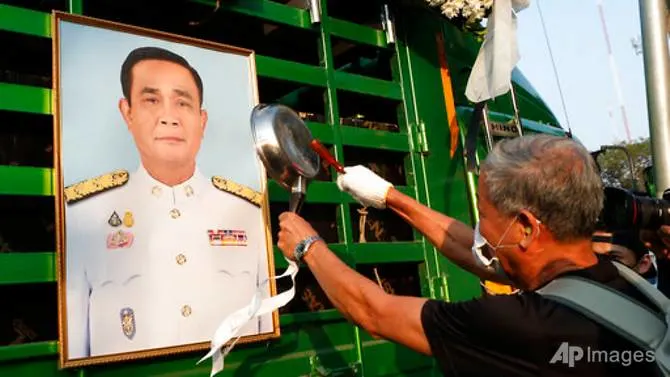Thailand's Prime Minister survives no-confidence vote
20 February, 2021

Thailand’s Primary Minister Prayut Chan-o-cha survived a no-confidence vote on Saturday (Feb 20) in parliament amid allegations that his government mismanaged the market, bungled the provision of COVID-19 vaccines, abused human rights and fostered corruption.
Nine additional ministers also survived the vote.
It marked the next no-confidence test Prayut’s federal government has faced since taking office in July 2019, carrying out a contested election after Prayut seized ability in a 2014 coup seeing that the army chief. In February last year, Prayut and five Cabinet ministers conveniently defeated a no-self-assurance vote in the lower house.
In the latest action, his government was also criticised for misusing its capacity to promote law enforcement officials and for establishing a cyber unit to attack government critics on social media, among other complaints.
But a far more serious allegation was that Prayut has deepened divisions in culture utilizing the monarchy as a shield against criticism of his federal government.
A student-led protest movements has campaigned since this past year for Prayut and his federal government to stage down. They want the constitution to be amended to create it extra democratic, and for the monarchy to be reformed to create it more accountable.
“The largest fault of Prayut is that he does not understand the principles of the constitutional monarchy,” said Pita Limjaroenrat, leader of the opposition PROGRESS Party.
“He employed the monarchy to protect himself whenever he was criticised or perhaps opposed. That is an evil action, making him no longer qualified to be prime minister,” he said.
His accusation refers to the enforcement of Content 112 in the criminal code, often known as the lese majeste laws. Prayut said in June this past year that King Maha Vajiralongkorn possessed expressed his wish for the government not to use the law against defaming the monarchy to prosecute protesters.
The legislation allows one to file a complaint with the authorities, with convictions carrying jail conditions of up to 15 years per offense. According to Thai Lawyers for Human Privileges, at least 59 persons including several minors were summoned beneath the legislation between November and February.
The monarchy is widely considered an untouchable bedrock of Thai nationalism.
Four well-known protesters including people rights attorney Arnon Nampa, student head Parit Chiwarak, and political activists Somyos Prueksakasemsuk and Patiwat Saraiyaem were prosecuted under the law and about sedition charges earlier this month. Their lawyer requested bail but the court denied it.
Prayut said the debate found in parliament was "a good chance of both sides to accomplish something mutually for our country and folks. And I am ready to clarify every allegation.”
Of the 487 lawmakers, 277 are the main ruling coalition and 210 are with the opposition. The censure action would require a simple majority, or 244 votes, to move. Prayut received 272 votes with 206 voting no-self-confidence and three staying silent.
On Friday evening, hundreds of protesters placed a mock censure motion against Prayut and the various other ministers on the street in front of the parliament building, phoning out their alleged corruption and noting their failing to address rising fiscal inequality in Thailand.
Protesters said another rally was first planned on Saturday afternoon.
Police said they might deploy a lot more than 10,000 officers in Bangkok over the weekend to regulate the crowds and keep maintaining law and order. Law enforcement vehicles, including normal water canon trucks, have been dispatched near to the parliament.
Source:
TAG(s):
